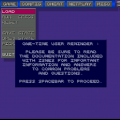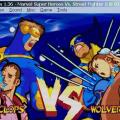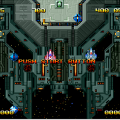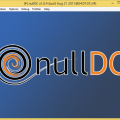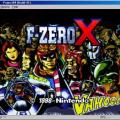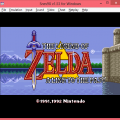- 0 replies
- 1,490 views
- Add Reply
- 0 replies
- 1,531 views
- Add Reply
- 1 reply
- 2,103 views
- Add Reply
- 0 replies
- 1,550 views
- Add Reply
AmiArcadia/WinArcadia 4.53 released

Multi-system emulator
AmiArcadia emulates the Emerson Arcadia 2001 (Bandai, Emerson, Grandstand,Intervision, Leisure-Vision, Leonardo, MPT-03, Ormatu, Palladium, Poppy,
Robdajet, Tele-Fever, Tempest, Tryom, Tunix, etc.) and Interton VC 4000
(Acetronic, Fountain, Interton, Prinztronic, Rowtron, Voltmace,
Waddington, etc.) console families, and the Elektor TV Games Computer.
Features include: ReAction GUI, load/save snapshots, windowed and full-
screen modes, CPU tracing, trainer, drag and drop support, iconification,
graphics scaling, automatic load/save of configuration, keyboard/joystick/
gamepad support, BIOS image not needed, autofire, warp mode, raster-based
emulation, gameplay recording/playback, PAL/NTSC modes, demultiplexing,
autosave, narrow mode, help window, source code, flag line emulation
toggle, debugger, frame skipping.
http://amigan.1emu.net/releases/
http://amigan.classicgaming.gamespy.com/
Changes since 4.52:
. Improved EAR/INR/TVR format.
. Miscellaneous improvements and bug fixes.
>> Get it at one of the above links.
COMX Emulator v0.8.7 released
With the files that will be made of other hardware ROM’s it may be possible in the near future to add more functionality to the emulator. Diskdrive support is build in now, and we managed to get an image of the DOS 1.40 master disk ! We are working very hard on other options and will keep you informed ! When you have an expansion card in your possession that is not build-in yet, like the voice synthesizer or printer card, please contact me.
By the way, in the emulator are also modes and ROM’s available for the Elf, Studio II and Cidelsa systems !
PCSX2 online! (WIP)

PS2 emulator
Drunk Together at Last![ Posted by CKemu 18:43 on 01 09 07 ]
GiGaHeRz did it!! *hic* *wobble*...erm, oh I'd best explain I suppose!
DEV9 is a section of the PS2 which handles a variety of things; HDD, USB and ethernet. GiGaHeRz has been working on one aspect of DEV9, ethernet!
PCSX2 now supports PS2 ethernet, so what does that mean? ONLINE PLAY BABY. On August 30th 2007 GiGaHeRz successfully logged on to the official Capcom Monster Hunter servers and entered a town, briefly after his success I to logged in and joined him!
Subsequently most of the betatesting and development team have logged onto Monster Hunter, interacted with people playing on their real PS2's and even gone questing with each other; including other Monster Hunter players.
This is a significant moment for PCSX2, as we are perhaps one of the first emulation projects to ever let the emulator user connect to a real live official server and play their game online. The only other project we are aware of; that has even come close to this feat would be nullDC (a Dreamcast emulator for Windows).
Testing is ongoing with a variety of online games, and the lack of USB keyboard and mouse support (hopefully to be resolved soon), means PAD typing messages is the only way to communicate online.
This advance towards emulating some of the more "unique" features of the PS2 has once again put into sharp focus the need for you to dump your own BIOS. The specifics I won't detail here, however those of you downloading your BIOS will suffer the consequences.
We shall let you know of further progress with any games we get to go online, but Monster Hunter is a fantastic example of how well PS2 emulation can work, average framerates of 50-70 FPS, with lows of 35 in intense moments. Monster Hunter is utterly stable, I myself have been playing it for some time only noticing minor visual issues on rare occasions.
You can watch a video and see some screenshots in the original article HERE.
Gens32 1.76 Surreal IceBlue released

Genesis emulator
Gens32 Surreal v1.76 IceBlue
1) Some update on sound stuff, make it sampler and faster.
2) Fixed the bug which resize the window while reactive.
3) Gens32 Antialiasings III released, designed for 1024*768.
4) Some update on Gens32 Antialiasings II.
5) Fixed the bug while playing CDDA.
Also, the nice theme (include background,start logo,menu logo,icon) was designed by AKM1989, really thanks.
And more.....
>> Get it HERE

